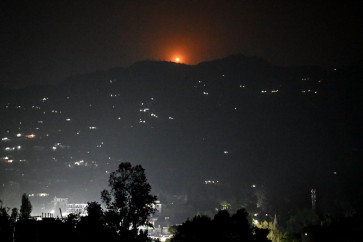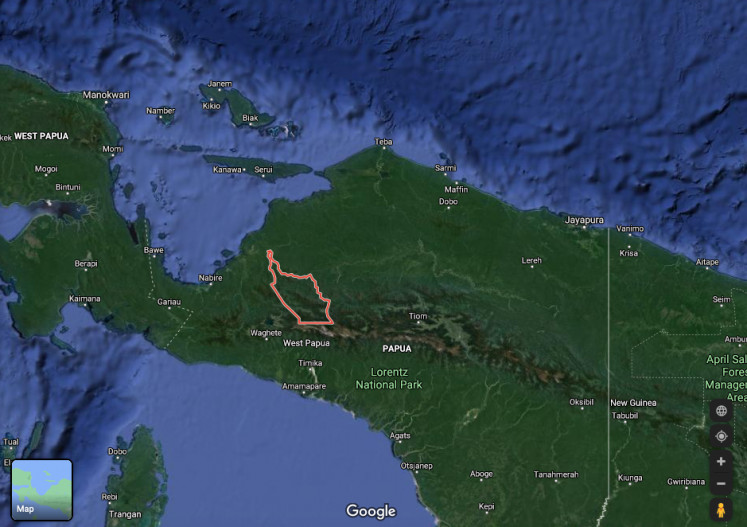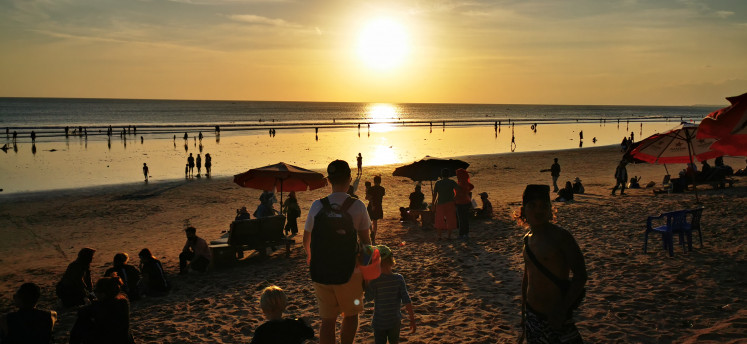Dwi Sujanti Nugraheni: Rejecting 'poverty porn' to find the Indonesian voice
(Courtesy of Duncan Graham)Dwi Sujanti Nugraheni (Heni) is 38 and not yet married
Change text size
Gift Premium Articles
to Anyone
 (Courtesy of Duncan Graham) (Courtesy of Duncan Graham)
(Courtesy of Duncan Graham) (Courtesy of Duncan Graham)
(Courtesy of Duncan Graham)
Dwi Sujanti Nugraheni (Heni) is 38 and not yet married. So what? That's hardly a knockout issue worthy of an opening line.
Except that Heni, like many Indonesian singles, still lives at home. She's not a lesbian. Her mother asked, concerned that might explain her daughter's apparent disinterest in men.
And it's not just her mom. Family, neighbors, friends ' just about everyone is concerned about Heni's marital status as the barren 40s approaches.
So what's a gal gotta do when faced with such outrageous personal intrusions? Get mad? Get even? If you're Heni you make a film.
'It will be called 30 Something and will focus on my life,' she said. 'It's going to be funny and a little bitter. The pressures I'm under are common for Indonesian women, particularly in small communities. I hope it will help me better understand our culture.
'My mom thinks that if I wed I'll be safe, but I know that's no guarantee. She tells me: 'I don't care who ' just marry before I die'.
'I appreciate her concern and that of the neighbors. I don't want to hurt them. They're good people, though like all Indonesians, nosey. I've already broken many cultural rules, like coming home late which arouses suspicion.
'You'll only find me in the malls if the weather's hot and I need to cool down. I prefer angkringan.' She says, referring to dining on inexpensive street food while sitting on the sidewalk ' a practice Yogyakarta is famous for. 'I can live frugally. My life is borderless.'
'I know what I'm doing. I'm not a prostitute or doing drugs. I'm working as a filmmaker. I want to live my life my way. I have many male friends, but marriage is not my priority.'
Instead her prime interest is shooting documentaries and running the now well-established Yogyakarta Documentary Film Festival, which turns 13 in December.
What could be finer for a film fanatic than watching, criticizing and selecting the nation's best creative work? The downside is that the genre has still to find clear focus in Indonesia.
'There are many problems, including that documentaries are seen as patriotic and nationalistic government propaganda,' she says. 'That's what we had to watch during the New Order era when I grew up.
The government-sponsored docudrama Pengkhianatan G30S/PKI (The Treachery of the Communists) was compulsory viewing for schoolchildren till 1998 when Soeharto lost power.
'The standard of entries is getting better but it's a slow process. The style of directors remains conventional, often imitating overseas trends, so I hold workshops to encourage filmmakers' creativity.
'Schools have the ability to show films but that's not on the curriculum. My dream is to change that situation ' we need to start with the young.
'You can't make a living making documentaries in this country. That's the reality. I fund my films through working as a researcher and other jobs. I can make US$1,000 go a long way.
'I try to get my films shown at festivals overseas where they are given respect. Then people in Indonesia start to pay attention. I don't submit them for censorship.'
Heni grew up in Yogya, the daughter of a college administrator. She started to study political science at the Gadjah Mada University but found little connection between the theories she was taught and the life she saw around her, so dropped out.
She's a self-taught filmmaker who has won four awards. Her 90-minute film, Denok and Gareng, tells the story of a courageous couple trying their hand at pig farming after years of street living.
Janji Jabrik (Jabrik's Promise) features a young man struggling with an HIV infection from using dirty needles.
While his friends rapidly perish from AIDS, he stoically tries to stay alive for his wife and child. He has since died.
Pengabar Kematian (The Death Messenger) is about a man who uses a trumpet in a village to announce the death of residents instead of broadcasting the news through the mosque's loudspeakers. He does this to give the passing a more personal touch.
Heni found these and other stories while working for a community health clinic in Yogyakarta. She has also helped deaf people make a film and is now working on a feature about villagers' beliefs in mountain spirits.
Her skills have been refined through an internship with the non-profit media arts organization Women Make Movies in New York.
Last year, she was one of two Indonesian women given the inaugural John Darling Fellowship (named after the late Bali-based Australian director) to attend a post-graduate course at the Australian National University called 'Thinking with a Video Camera'.
'I'm not into poverty porn,' she said. 'This is my job and I do it seriously. I respect the people I film and their stories. I want the audience to get closer to the subjects. I hope my work encourages viewers to be reflective.
'American films tend to be issue-driven, while European cinema is character-driven, a style I follow. I don't intrude with commentary ' I'm more of a fly-on-the-wall director.
'I love to travel. I've found Europe, and Germany in particular, to be the most accessible for independent documentary makers. I also admire Japanese documentaries because they reveal that nation's culture.'
'We Indonesian filmmakers have got to find our own voice, not imitate others. Documentaries should hold up a mirror to society. It's not about nationalism; it's about understanding who we are, and to make a better society.'









